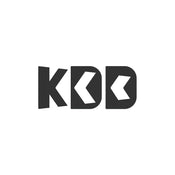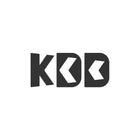We use toothbrushes every day. Mouthwash is also a good tooth care product. So should mouthwash be used before or after brushing?
If you have to choose between brushing your teeth or after brushing your teeth, it must be used after brushing your teeth.
Because brushing your teeth first can effectively remove the dirt in the oral cavity and the residue particles in the gap between the gums, the cleaning effect is remarkable. However, mouthwash is only an auxiliary and health-care effect for cleaning the oral cavity. It is used to inhibit bacteria and prevent stomatitis. Mouthwash is impossible to completely remove dirt.

Therefore, it is best to use mouthwash after brushing your teeth.
Even if you don’t brush your teeth, it’s better to rinse your mouth with clean water before using mouthwash. Put the clean water in your mouth and agitate the cheeks on both sides so that the clean water can fully contact the teeth and gums in the mouth, and use water to repeatedly rinse all parts of the mouth. As far as possible, remove the food residues left in the mouth, so that when using mouthwash, the mouthwash can contact the gums with the largest area to help freshen breath and sterilize bacteria.

But in fact, using mouthwash before and after brushing your teeth is not the best choice. The most beneficial habit for oral hygiene is to use mouthwash after eating, especially when it is inconvenient to brush your teeth.
- It is recommended to use mouthwash when it is inconvenient to brush your teeth after eating. For example, after eating at the company at noon, you can use mouthwash to clean.
Because at this time, the food residue will be effectively washed out from the surface of the teeth or between the teeth, reducing the bacteria in the mouth and weakening the growth and reproduction of bacteria.
- When rinsing your mouth, you should first rinse your mouth with clean water. The method is: put the clean water in your mouth, agitate your cheeks and lips, so that the clean water can fully contact the teeth and gums in the mouth, and use water to rinse all parts of the mouth repeatedly. It is possible to remove food residues and soft dirt in the small pits and grooves of the teeth, interdental spaces, gums, lip and buccal grooves, etc., so that the number of bacteria in the oral cavity is relatively reduced, so as to achieve the purpose of cleaning the oral cavity.
- Finally, a reminder that no matter how good mouthwash is, it cannot replace brushing teeth. Mechanical brushing twice a day is essential.
It is impossible to completely remove the soft dirt on the surface of the teeth and the residue in the gap between the teeth with mouthwash. If you feel that you can't clean every corner when brushing your teeth, you can also use mouthwash as a supplement after brushing your teeth.

